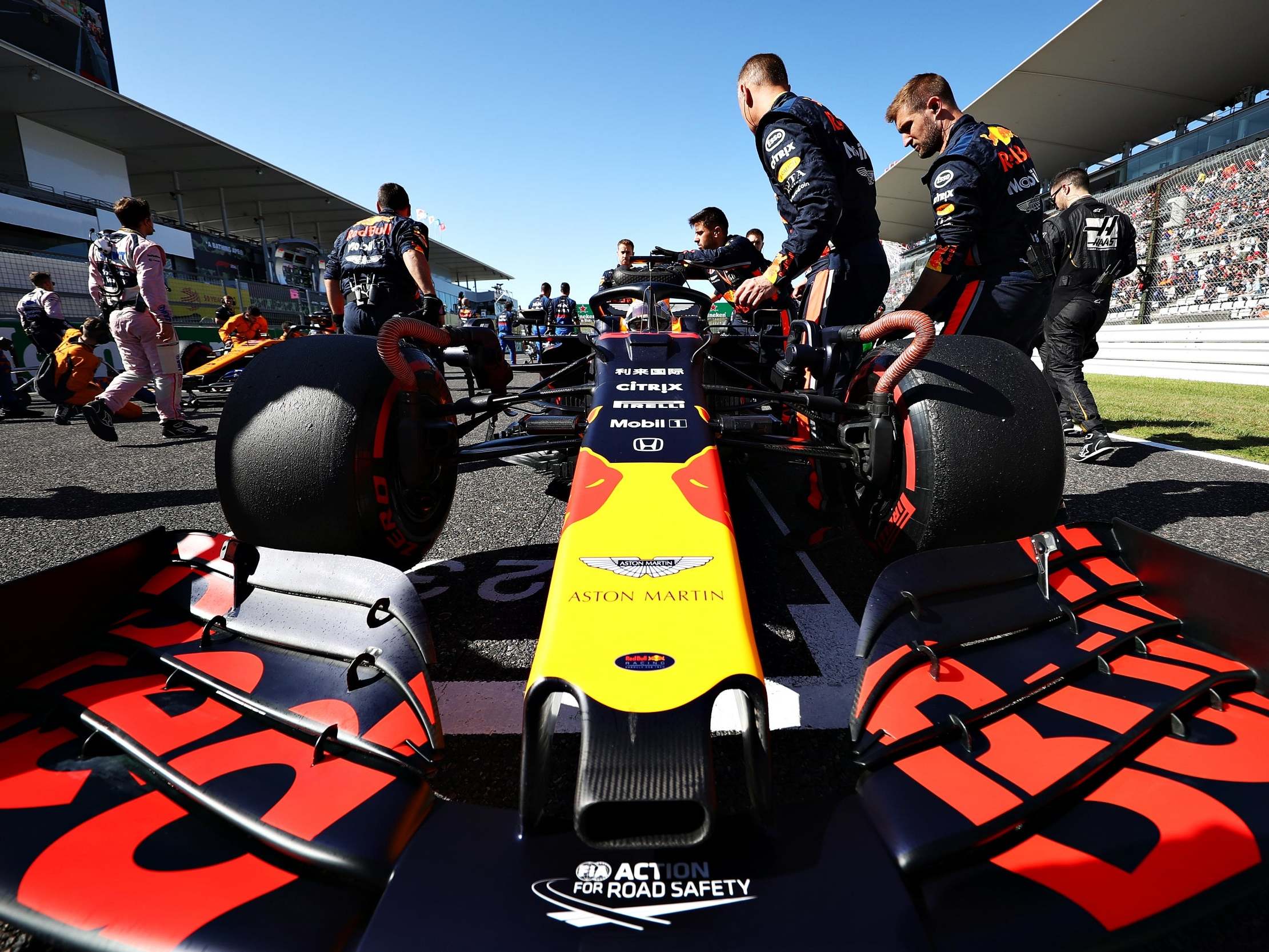Red Bull accounts reveal record £304.2m investment into Formula One despite disappointing results
The company’s spending has reached an all-time high but performances on the track remain short of top gear

Your support helps us to tell the story
From reproductive rights to climate change to Big Tech, The Independent is on the ground when the story is developing. Whether it's investigating the financials of Elon Musk's pro-Trump PAC or producing our latest documentary, 'The A Word', which shines a light on the American women fighting for reproductive rights, we know how important it is to parse out the facts from the messaging.
At such a critical moment in US history, we need reporters on the ground. Your donation allows us to keep sending journalists to speak to both sides of the story.
The Independent is trusted by Americans across the entire political spectrum. And unlike many other quality news outlets, we choose not to lock Americans out of our reporting and analysis with paywalls. We believe quality journalism should be available to everyone, paid for by those who can afford it.
Your support makes all the difference.Red Bull’s flagship Formula One team poured more money into its 2019 campaign than it did in any previous season since it was bought by the energy drinks giant in 2004, according to recently released accounts.
F1 cars are developed the year before they race and the latest accounts for Red Bull Technology show that its costs accelerated by 8.9% to a record £304.2 million in 2018. The company directly owns four-time F1 champions Red Bull Racing and designs, develops and manufactures its cars.
The team hasn’t won the F1 title since 2013 and although its spending has reached an all-time high, its performance on track still hasn’t hit top gear.
Last year it finished third in the standings and it has no chance of winning the 2019 drivers’ or constructors’ championship after Mercedes sewed up both titles at Sunday’s Japanese Grand Prix. Valtteri Bottas steered the Silver Arrows to victory in the race whilst reigning champion Lewis Hamilton finished third meaning that they are the only drivers left in contention for the title.
Red Bull’s Alex Albon finished one place behind Hamilton on Sunday but his teammate Max Verstappen retired following a collision with Ferrari’s Charles Leclerc on the opening lap. Red Bull has only won two races so far this year and both were at Verstappen’s hands. In contrast, it had four victories in 2018 and this also drove up its costs.

The team won one more race in 2018 than the previous year so it had to pay higher performance bonuses to its drivers. However, the bulk of its costs were spent on staff and research and development. Salary payments rose 1.8% to £84.4 million as the team added 16 staff giving a total of 809. Its team boss Christian Horner is understood to be the highest-paid director with a salary of £3.4 million, according to the accounts.
Research and development costs increased by £10.2 million to £118.1 million and this wasn’t just driven by racing. The accounts state that “the principal activity of the group is the design, development and manufacture of Formula One racing cars.” However, they add that the company also “applies high-end engineering know-how outside of Formula One.” This includes collaborating with Aston Martin on a 225 miles per hour hypercar and developing a range of yachts with Sunseeker.
After paying its £304.2 million of costs, Red Bull Technology was left with a pre-tax profit of around £10 million as it had £314 million of revenue. This largely came from prize money, sponsors such as watchmaker TAG Heuer and payments from Red Bull itself.

The energy drinks giant ultimately owns Red Bull Technology and its logos are emblazoned on the F1 cars. It paid the team £104.2 million for this exposure last year, an increase of 10.6% on 2017. It remains to be seen how long this will continue.
F1 is rapidly approaching a crossroads as the teams’ race contracts all expire at the end of next year and the sport’s governing body, the Fédération Internationale de l’Automobile (FIA) has proposed introducing radical new regulations after that. Major aerodynamic changes are under discussion as well as the re-introduction of mid-race refuelling which hasn’t been allowed since 2009.
The accounts point out that “changes in regulations by the FIA can have a material impact on a team’s competitive capabilities with significant commercial consequences.” Ominously, they add that “the company is mindful that under the new commercial and regulatory framework, post-2020, Formula One needs to remain attractive for Red Bull’s continued support.”
The FIA has committed to finalising the new regulations by the end of this month so it is now in a race against time to get all of the teams across the finish line.
Join our commenting forum
Join thought-provoking conversations, follow other Independent readers and see their replies
Comments